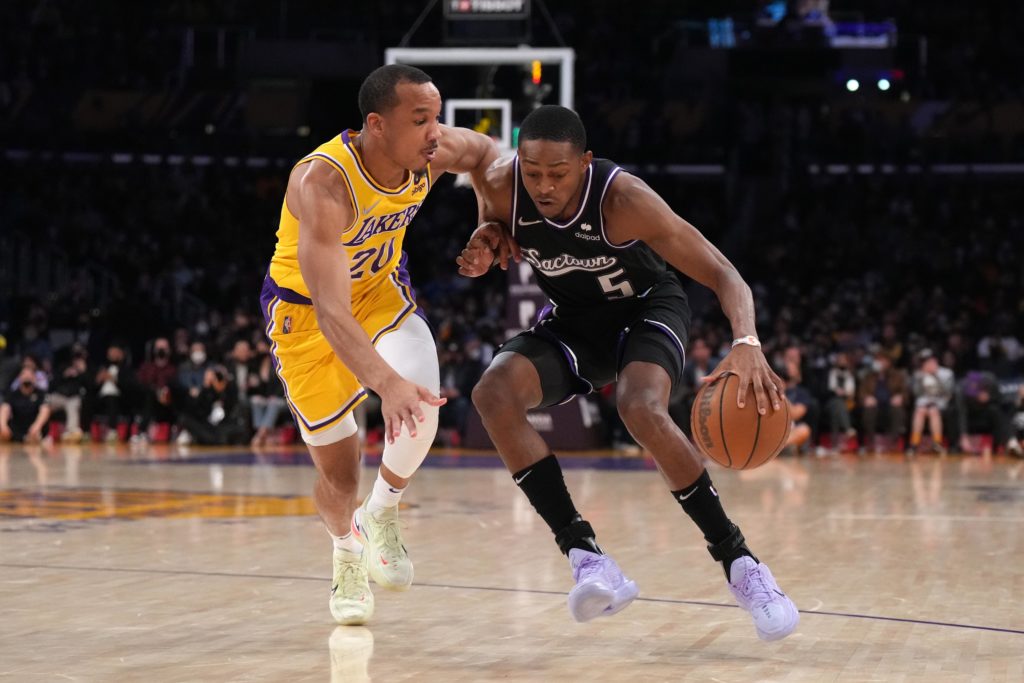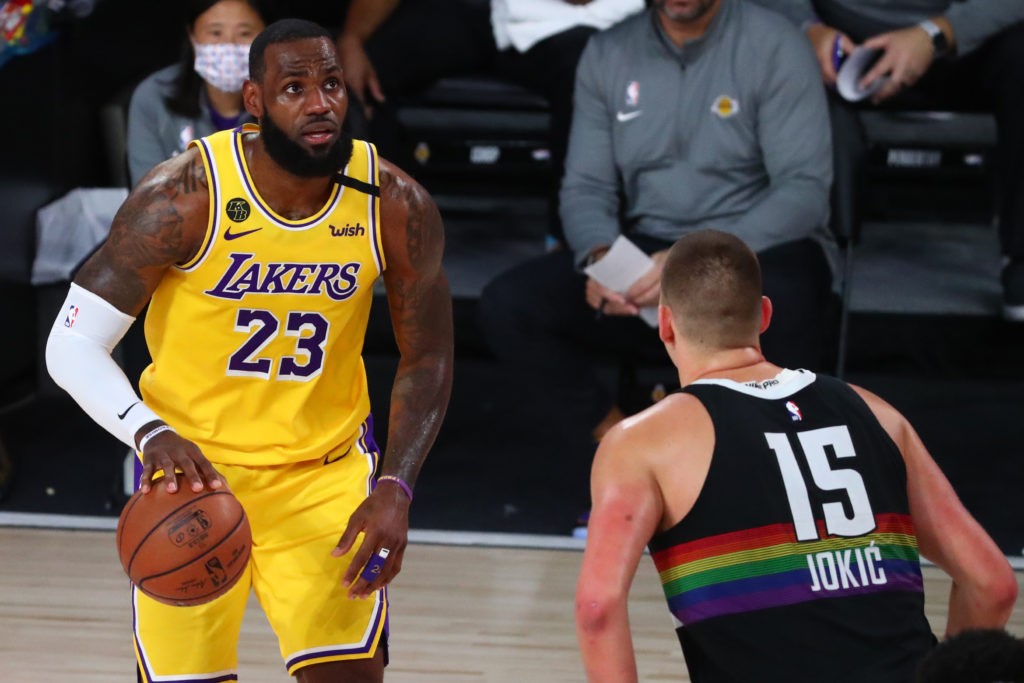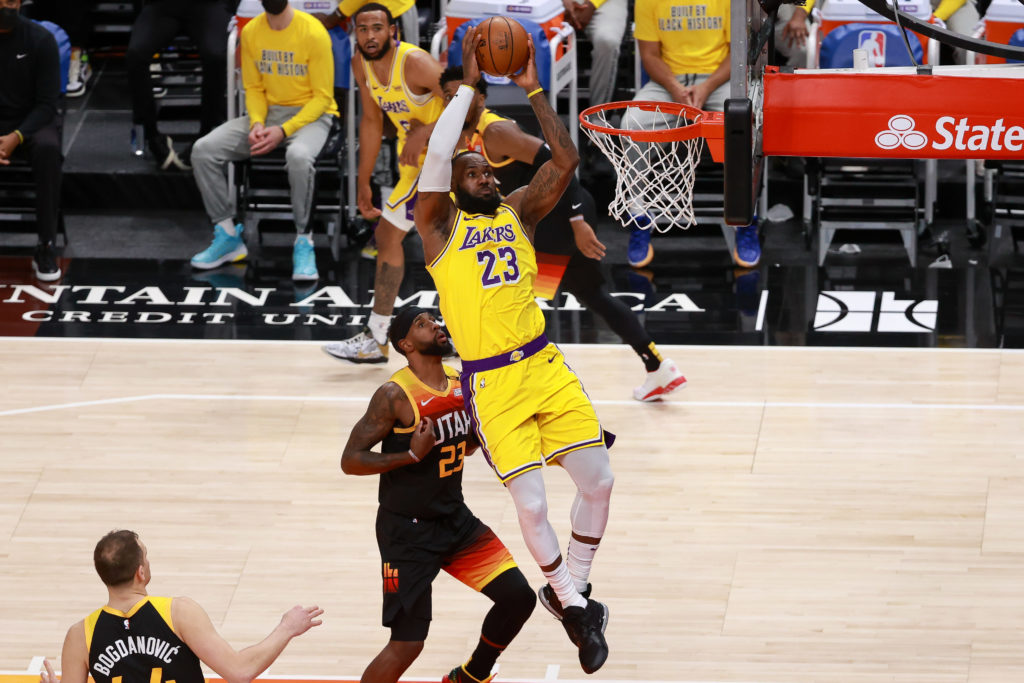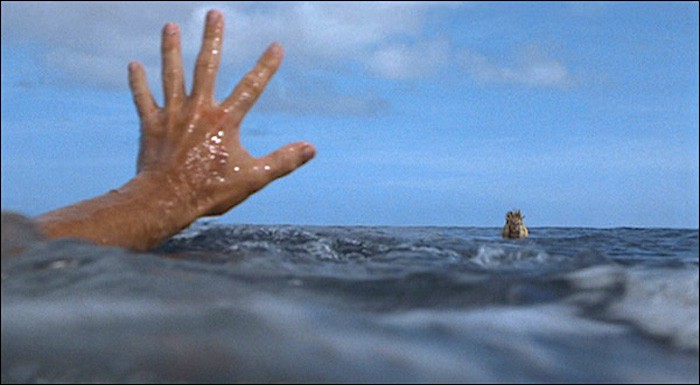Since the miserable failure that was the 2021-22 Los Angeles Lakers season came to a merciful end, the attention of Lakers fans has turned to possible Russell Westbrook trades and what the front office can do to salvage what...
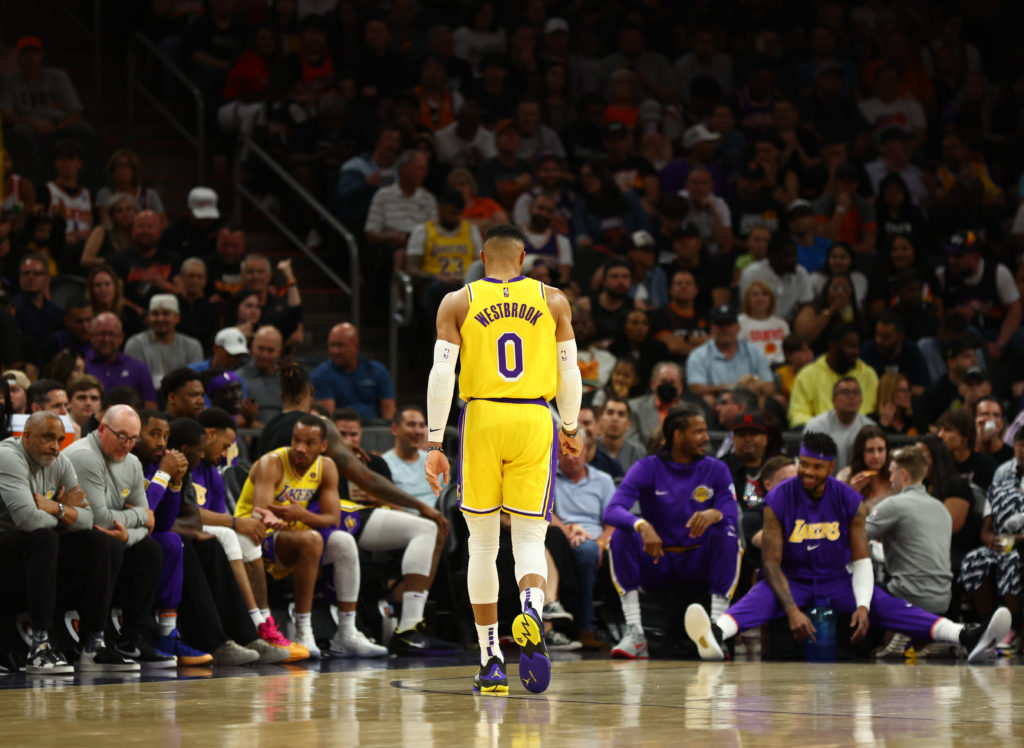
Since the miserable failure that was the 2021-22 Los Angeles Lakers season came to a merciful end, the attention of Lakers fans has turned to possible Russell Westbrook trades and what the front office can do to salvage what is left of LeBron James remarkable career and return the team to contender status.
All of the deals that have been bandied about come with their own pluses and minuses. While the front office is fully aware that the team’s best player is going into his 20th NBA season, they must also keep an eye on the future of the franchise once his playing days are done. All that being said, the most important decision that needs to be made involves LeBron James and whether or not he chooses to sign the 2-year and approximately $100 million contract extension that the Lakers are sure to offer him on top of the 1-year and $47.5 million he has left on his current deal. Why is that important? Because the Lakers will be hesitant to include their 2027 and 2029 first-round picks in trades if LeBron is only under contract for one more season.
So for the sake of this exercise, let’s assume that LeBron plans to sign that extension. Here are the trade possibilities involving Westbrook that seemed to come up most often, in no particular order:
Houston Rockets
This is the trade that has been discussed the longest because we started hearing rumblings about it prior to this season’s trade deadline. It would also be the second time these two were traded for each other. Both have nearly identical contracts so neither team would be getting any kind of financial relief. The Rockets have no incentive to make the trade without getting draft compensation and per Yahoo!’s Chris Haynes, a deal never happened because the Lakers were unwilling to include a first-round pick. Perhaps the Lakers were hoping that they could make the trade this summer without having to include a pick. Wall seems unwilling to take a buyout. So unless Westbrook is, the question is what type of draft or player compensation would the Lakers have to include to make it worth it for the Rockets?
Regardless, does the trade make the Lakers significantly better even without including a draft pick? We don’t really know. Wall didn’t play a game this past season, which means he’s now played in only 113 games over the last five seasons. That’s an average of 22.6 games per year dating back to 2017-18. Even if he’s a better fit than Westbrook, how much better would he make them? Definitely not enough to give up a first-round pick when there are likely better deals to be made.
However, there is a trade involving these two teams that could be more attractive to both. Eric Gordon has one guaranteed year at $19.6 million left on his deal. He also has a non-guaranteed $21 million in 2022-23 that becomes guaranteed if his team wins the championship. That isn’t a possibility in Houston but it might become a possibility if he’s traded to a contender. All that means is that Gordon would welcome a trade to even a potential contender.
So while a straight-up Westbrook-for-Wall trade involving a future first-round pick doesn’t excite Lakers fans, the possibility of a Westbrook and Talen Horton-Tucker for Wall and Gordon and future first-round pick might be more appetizing. This would also be attractive for Tilman Fertitta, the Rockets notoriously cheap owner, because it would save the Rockets about $10 million off of what they’re currently scheduled to pay Wall and Gordon combined next season.
The addition of Wall and Gordon to LeBron and Anthony Davis gives the Lakers a much better chance at a turnaround next season than if they just added Wall because Gordon gives the team two things that this past season’s team sorely lacked: defense and shooting. Gordon made 41 percent of his 3-pointers this season, the second-best percentage of his 14-year career. That’s the good news. On the minus side, it doesn’t address two of the roster’s other glaring weaknesses, youth and athleticism. While those can be addressed elsewhere, how well can they be addressed after trading two of their only few trade assets, a first-round pick and Horton-Tucker, to get Wall and Gordon?
Indiana Pacers
This was a trade that was mentioned in both Marc Stein’s Substack and in a conversation between Zach Lowe and Kevin Pelton on last week’s Lowe Post podcast. Westbrook, Horton-Tucker and the 2027 and 2029 Lakers first-round picks for Malcolm Brogdon and Buddy Hield. Brogdon has three years and $67.6 million left on his contract while Hield has two years and around $40.5 million left on his.
The Domantas Sabonis-for-Tyrese Haliburton trade has changed the Pacers timeline, making both Brogdon and Hield expendable. The ability to get out of those remaining years and dollars for just one year of Westbrook makes a lot of sense for them. As for the Lakers, the knee-jerk reaction is that this is a no-brainer for them. It gives them another ball-handler in Brogdon and one of the league’s best shooters in Hield. On the flip side, Hield, a 40 percent career 3-point shooter, is coming off the worst shooting season of his 6-year career, both from beyond the arc (37 percent), as well as overall (41 percent) while Brogdon, the 2016-17 Rookie of the Year, has played fewer than 100 games over the past two seasons due to knee, hip, hamstring, Achilles and lower back injuries.
Given the fact that injuries were the main culprit in the Lakers lost season, are we sure their best option is to acquire someone with such a troubled recent injury history at the expense of two future first-round picks? Maybe if they only had to include one first but two firsts seems a bit too rich for my blood.
New York Knicks
ESPN’s Bobby Marks mentioned this one on an episode of the Lowe Post Podcast back in January, before the trade deadline. This is your classic example of a “You take my trash and I’ll take yours” trade. Or even better, a “You take our player who gets booed by the home crowd and we’ll take yours.” Last summer the Knicks signed Evan Fournier to a 4-year, $78 million contract and Kemba Walker for two years and $18 million. They also re-signed Alec Burks for three years and $30 million and gave Most Improved Player Award winner and former Laker Julius Randle a 4-year, $117 million extension. How’d it turn out? The team had four fewer wins despite having played 10 fewer games and missed the Play-In Tournament.
Ask any Knicks fan and they’ll tell you they just want to see them play the kids. Any combination involving those four guys for Westbrook represents a chance for the Knicks to hit the reset button and head back out into free agency before R.J. Barrett’s big money extension starts counting against their cap. What’s in it for the Lakers? The chance to not only rid themselves of Westbrook but also the chance to replenish their depth by replacing a roster filled with aging unathletic vets with guys still in their prime, excluding Walker. I don’t hate this trade so long as the Lakers don’t have to add a first-round pick. If they do, I would hope they’d also try to get Derrick Rose as part of the deal.
Charlotte Hornets
Here’s one that has started to pick up some steam in the past several days and I’ve been tweeting about it since January. Jack Fischer of Bleacher Report reported that Gordon Hayward would be interested in a change of scenery. I can’t mention Malcolm Brogdon’s recent injury history without mentioning that Hayward has only played one more game than Brogdon has over the past two seasons because of injuries to his hip, back and both feet. Hayward has two years and $61.5 million left on his deal. The Hornets have Miles Bridges’ restricted free agency as well as the looming rookie extension for P.J. Washington that would start in 2023-24. Bridges, a Klutch client, turned down a 4-year, $60 million extension last year and will be looking for a deal that dwarfs that one.
Would they be interested in swapping out the two remaining years of Hayward’s contract along with Kelly Oubre’s contract for only one year of Westbrook? Oubre only has $5 million guaranteed on a $12.6 million expiring deal. The Lakers would not only rid themselves of Westbrook, but they could then try to move Oubre’s expiring deal for something else if they weren’t interested in keeping him. This is another deal where I would hate to see the Lakers give up both first-round picks. Given Hayward’s injury history, I would hope they could make the trade without including either first. But you have to give up something to get something.
Oklahoma City Thunder
It was only five years ago when the Oklahoma City Thunder gave Westbrook what was then the richest contract in NBA history, five years and $205 million. Two years later they traded Paul George to the Clippers and then traded Westbrook to the Rockets, beginning a rebuild that has seen them miss the playoffs the past two years while trying to accumulate as many assets as possible. With their current franchise player, Shai Gilgeous-Alexander, ready to see his salary increase from $5.5 million this season to $30.5 million next season, the Thunder still have $31 million in cap space that they will lose once the calendar turns to next season on July 1.
And that brings us to the trade that was mentioned by John Hollinger of The Athletic a couple weeks ago. He proposed a Westbrook with both first-round picks going to the Thunder for Derrick Favors, Ty Jerome and Kenrich Williams. Before you scoff at the trade because of the players coming back, it’s important to note what else the trade would provide the Lakers with.
Unlike the other trades mentioned above, the Lakers wouldn’t have to match with Westbrook’s salary because the Thunder have the cap space to absorb much of Westbrook’s contract. Because of that, the Lakers would get a $34 million trade exception that could be used for up to one year to add players from other teams looking to dump salary without having to give up anything in return. Some realistic targets for use with that exception would be players on small-market teams that are not in contention and looking to shed payroll. That would include the aforementioned Hayward, Hield, Brogdon and Fournier. Others include Orlando’s Gary Harris or Sacramento’s Harrison Barnes.
The salary savings would also get the Lakers under the luxury tax threshold, giving them use of the non-taxpayer mid-level exception (appx. $10.3 million) rather than the taxpayer mid-level exception (appx. $6.3 million). With only a few teams having significant salary cap room to offer free agents, the rest of the league will all be competing for the same free agents, using only their exceptions. The ability to offer a free agent $10.3 million instead of just $6.3 million annually is a huge difference. I should also mention that these exceptions can be split up to be used to sign two players. So the Lakers would be able to use $6 million to sign one free agent and $4.3 million on another. It could also be used to bring back Malik Monk at a salary commensurate to what he’s expected to fetch on the open market.
Hollinger also mentions that the Lakers would regain their ability to use the bi-annual exception, available to teams less than $6 million above the luxury tax limit. The Lakers weren’t able to use the $4 million bi-annual exception last offseason because it can only be used once every two years and they used it on Wesley Matthews in 2020-21.
As for the players Hollinger mentions, Favors, Jerome and Williams are all under contract for only one more year. Williams is clearly the best of the three. Favors has a $10.2 million player option that he’s sure to exercise for next year that could be used in a future trade. Jerome has a $4.2 million expiring deal that would also help facilitate a trade down the road.
The last important thing that Hollinger mentions in this trade scenario is that it doesn’t involve either Horton-Tucker or Kendrick Nunn, leaving both available to be used in other trades.
The more I think about the Hollinger trade, the more I think it makes the most sense. As of now, the Lakers are looking at bringing back LeBron James, Anthony Davis, Austin Reaves, Stanley Johnson, Wenyen Gabriel and Mac McClung. They would love to add Malik Monk but might not be able to afford to. Then add Carmelo Anthony as someone who would probably like to come back if the team can present one last chance to win a ring. Add Horton-Tucker and Nunn as two guys under contract who could possibly be traded. Then replace Avery Bradley, Wayne Ellington, Kent Bazemore and DJ Augustin with Favors, Williams, Jerome and whatever you could add with the two cap exceptions and the $34 million trade exception.
Instead of the top-heavy roster they had this past season with three guys making $121 million, one guy making $9.5 million, one guy making $5 million and literally everyone else on the roster making the league minimum, they would have something that might look like this:
LeBron James – $44.5 millionAnthony Davis – $38 millionTalen Horton-Tucker – $10.3 millionDerrick Favors – $10.1 millionMalik Monk – $7 million (of $10.3 million mid-level exception) Kendrick Nunn – $5.3 millionTy Jerome – $4.2 millionBi-Annual Exception Player – $4 millionMid-Level Exception Player – $3.3 million (of $10.3 million mid-level exception)Stanley Johnson – $2.4 millionKenrich Williams – $2 millionWenyen Gabriel – $1.9 millionCarmelo Anthony – $1.9 millionAustin Reaves – $1.5 millionThis is the type of salary structure they had when they won the championship in 2020. They had a middle-class made up of guys like Danny Green, Kentavious Caldwell-Pope and a re-signed Kyle Kuzma. They lost that middle-class when they traded Green for Dennis Schröder, who they let go in free agency along with Matthews, and then traded Caldwell-Pope and Kuzma with Montrezl Harrell for Westbrook.
The above roster isn’t championship-caliber. Not yet. But it allows for the flexibility and experimentation that the 2021-22 roster never provided not only on the court, but more importantly, with the front office and possible personnel decisions. What Favors, Nunn and Jerome lack as desirable players to other teams they compensate for in being nearly $20 million in expiring contracts.
At the very least, this deal would still allow them to be the free agent players in the summer of 2023 they would be if they brought Westbrook back next season and just let him leave when his contract expires.
All we can hope for is that the front office is kicking the tires on every potential trade and willing to think outside the box. It’s important to remember that as terrible as last season was, they still have arguably two of the league’s top-10 players and that’s a place that around 25 other teams would kill to be sitting in right now.
The post Weighing the Lakers Russell Westbrook Trade Possibilities appeared first on Forum Blue And Gold.





